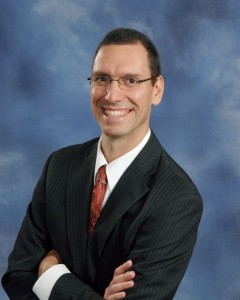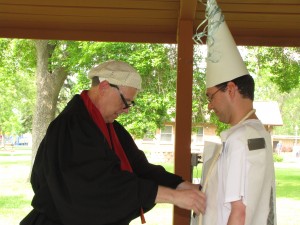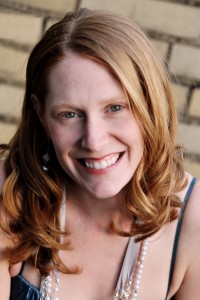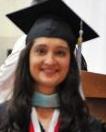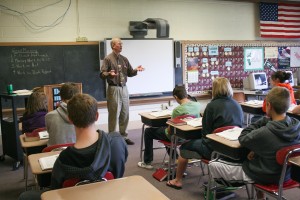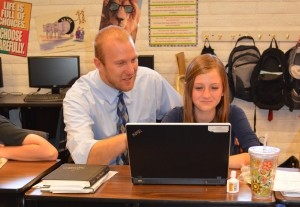The office of principal has called out to Chris since his graduation from MLC in 2004. At Zion-Denver, he served one year as vice principal and grade 7-8 teacher before stepping into the principalship and a grade 5-8 classroom. At Emmaus-Phoenix, he taught grade 5-6 and handled the athletic director duties for three years; then he and the principal, with the blessing of the board and congregation, switched roles.
Principals across the synod will nod in understanding as they hear Chris describe his normal day: “It starts before 5:00 am and usually ends around 9:00 pm. I study God’s Word with my faculty in the morning, give knuckles or elbow bumps to students in the morning and tell them to have a great day, teach my 7th-8th graders, answer emails, return phone calls, attend meetings, build and foster relationships with parents and students, complete administrative responsibilities, correct and point students to their Savior when sin gets the better of them, carry out ministry with my faculty, coach my teams, administer the church and school technology, occasionally unclog a toilet or mop a floor, play games with my students at recess, and, most important, daily point the students at Emmaus to their Savior.”
MLC’s master’s program, with a leadership emphasis, has given his already-strong ministry an additional boost. “The impact of master’s classes on my ministry has been immeasurable,” he says. “I was able to implement many ideas and skills in my classroom immediately after I learned them.”
He cites three specific courses. In his Educational Leadership course taught by Dr. Michelle Abrego, he wrote a writing curriculum that his faculty now uses to teach students the writing process and prepare them for high school writing. The class also afforded opportunities for deep discussions on the traits of great principals. In Supervision of Instruction taught by Dr. Robert Klindworth, he discovered his personal supervisory philosophy and explored how he would implement it at Emmaus. And in his Behavior and Emotional Disabilities class taught by Professor John Juern, he created an Emergency Procedures Plan, a document that was referenced in the WELSSA accreditation process Emmaus was pursuing at the time.
In fact, many assignments in the master’s program helped Chris lead his school through the accreditation process. They earned Exemplary WELS School Accreditation status in March 2014.
The entire master’s program, he says, “has opened my eyes to all the new and different ways to teach and learn and has made me excited to continue improving the education offered at Emmaus.”
Because new educational theories are always being introduced, continuing education is crucial, he says. “Some new educational theories are good; others actually do a disservice to a student’s education. I don’t know which theories are helpful and which are not if I don’t continue to study, practice, and fine-tune the education I’ve received.”
Chris encourages all teachers and principals: “Go sign up for the master’s program! God will give you the time, money, energy, and everything else you need to complete it. You will grow personally as an educator, you’ll become aware of blessings you never knew God gave you, and you will become even more of a blessing to your congregation and school with your new knowledge, improved skills, and zeal to strengthen and improve your school.”
All about Chris Hintz
Family: Wife, Nikki (nee Jaeger), Kaden (age 7), Kirsten (age 5) and new baby (due October 2014)
Ministry history:
2002-03 Shepherd-Albuquerque NM: grade 4-5 emergency teacher
2003-04 MLC: senior year and graduation
2004-05 Zion-Denver CO: vice principal, grade 7-8 teacher
2005-08 Zion-Denver CO: principal, grade 5-8 teacher
2008-11 Emmaus-Phoenix: athletic director, grade 5-6 teacher
2011-14 Emmaus-Phoenix: principal, grade 7-8 teacher
Hobbies: running; camping; hiking; watching and playing basketball, baseball, and football; computers; technology; photography; reading education books and John Grisham novels.

